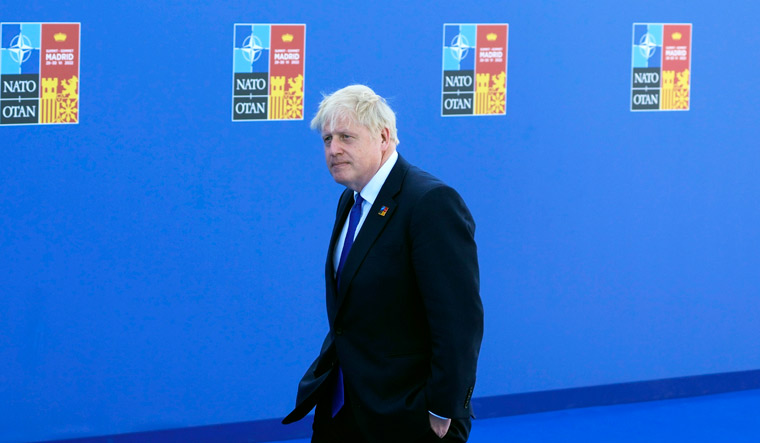The UK's Boris Johnson government suffered a severe jolt after Chancellor of the Exchequer Rishi Sunak and Health Secretary Sajid Javid stepped down on Tuesday. The ministerial exits follow a day of high political drama since a former civil servant spoke out about Downing Street's handling of allegations against recently suspended MP Chris Pincher. The public rightly expects the government to be conducted properly, competently and seriously, Sunak tweeted when he posted his resignation letter.
So, does this mean the end of the road for Johnson, who took oath in 2019? Sunak and Javid represent two growing communities in the UK-- Indian and Pakistani. These two ministers stepping down means that the Tories could lose a considerable portion of the vote bank that these communities make up. About 1.4 million people in Britain are of Indian origin and 1.1 million of the population in the UK are of Pakistani origin-- these certainly make for significant numbers.
Sunak and Javid also held important portfolios-- health and finance. They are also fairly senior members of the Conservative party. This could make it difficult for the PM to gain the support of other members of parliament from his own party.
There's a possibility that the 1922 committee convenes to decide Johnson's future. As per current rules, the prime minister is immune to a second vote of no confidence for precisely 12 months following the poll on June 6. In this vote, 144 MPs voted against him and 211 backed Johnson. The committee, however, could convene, easily gather enough signatures and change the rules, which is to say, make Johnson vulnerable to a second vote of confidence, where things may not go in his favour this time. The 1922 committee themselves are in the process of electing new members-- again, if more anti-Johnson candidates are elected to the committee, it could spell trouble for the PM.
144 of the MPs who voted against Johnson were backbenchers. Only backbenchers can vote for the six executive posts and 12 officers, meaning that the estimated 160 MPs on the government payroll, according to National News. This means, this time around, the committee could be heavily weighted against Johnson. In short, a second vote of no confidence cannot be ruled out before the summer recess on July 21. the Tory government suffered a blow when they lost two seats in the by-elections in June-- Tiverton and Honiton and Wakefield. This triggered the resignation of party chairman Oliver Dowden,
Again, with heavyweights like Sunak and Javid stepping down, overall support for the Tory party could come down. MPs will now fear losing out votes from their constituencies, making them hesitant to support Johnson. Besides, several more MPs could quit, making things difficult for Johnson.




